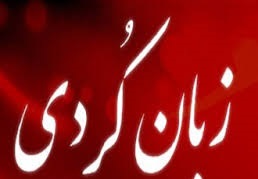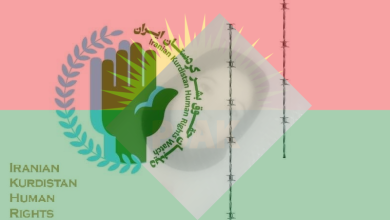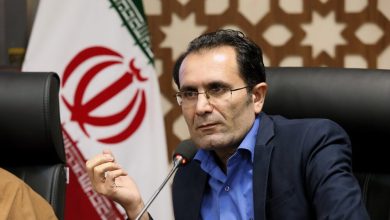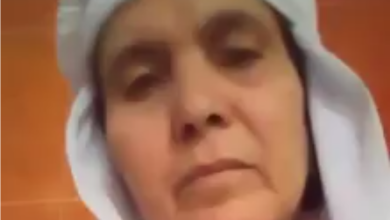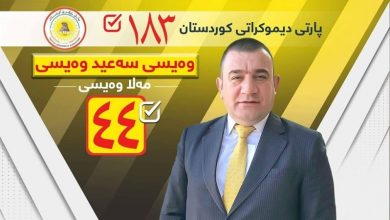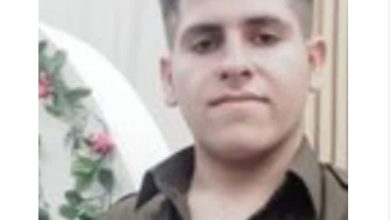Lawyer and Dean of Saqez Payam Noor University: After several courses and providing the necessary conditions, we will move towards the establishment of Kurdish language and literature department.
The right of teaching the mother tongue, in many human rights documents and treaties, such as the Charter of the Mother tongue, the Universal Declaration of the Rights of Languages, paragraphs 1 and 2, of the Declaration of the Rights of Persons belonging to Ethnic, National, Linguistic and Religious Minorities, Article 1 of the Convention on the Rights of the Child, the International Convention on Civil and Political Rights has been emphasized. When one’s mother tongue is denied, according to all valuation systems, it equals a great mistake, meaning that it is not justified both in terms of legal, ethical, aesthetic, and expedient valuation systems. That is, not all valuation systems are allowed to take away from their native language or create restrictions on their native language use.
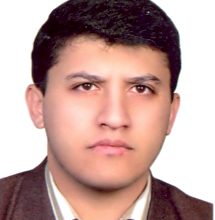
Article 15 of the Iranian Constitution also emphasizes the right to teach the local languages and literatures, alongside Persian, at schools. Article 15 of the Constitution states: “The official language and script of the Iranian people is Persian. Documents, correspondence, official texts and textbooks must be in this language and script. But using local and ethnic languages in the press and mass media and teaching their literature at schools is free alongside Persian. “
Kurdish is one of the local and ethnic languages in Iran. It has a variety of dialects used in various Kurdish areas of Iran as well as in Kurdish-inhabited countries (Turkey, Syria and Iraq). These dialects have practically become independent languages, so without translating one into another it is not even understandable to the educated, and this is also the case in the conversation. For a long time, especially in Turkey, the government’s approach to its Kurdish population, speech, teaching, education and other Kurdish-related issues and its various dialects was to severely restrict. These restrictions even reached the point where the use of Kurdish names was not legal. Even in Turkey, under the rule of Kemalismprinciples, the existence of ethnic groups was denied, and named the Kurds as “Mountainous Turks”. This approach is still strongly present in Turkey now.
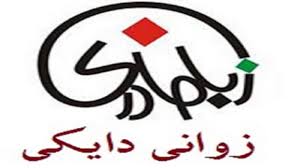
In Iran, the Pahlavi government banned the Kurds, following Ataturk, and named the Kurds as “Mountainous Iranians” and the Kurdish language as “a local dialect of Persian”, while banning the publication of Kurdish books. Speaking Kurdish was not banned in Syria either, but Kurdish political parties’ books in Kurdish were banned. This misconception has never existed in Iran, and the policy of the Iranian government since the 1979 revolution has in no way been based on denying nor suppressing them, or even refusing to recognize the Kurdish language. Even to the Iranian authorities, the Kurds have been one of the best, bravest and most Iranian ethnic groups in Iran and their language is is cinsidered as a national capital, as the Supreme Leader said once.
Iran has never had a policy of oppressing ethnic groups, exterminating local languages and rituals and their traditional beliefs, and has adopted the constitution as a national treaty containing the values of local and ethnic languages and has freely taught and let them be spoken. For this reason, academics and academic elites in the Kurdish community are increasingly seeking to establish a Kurdish language discipline at private universities and educational institutions. In this regard, the Saqez Payam Noor University has recently announced that it will be conducting an intensive and short-term “Kurdish Language Teacher” course starting from February.
While welcoming this cultural movement that is in line with the implementation of Article 15 of the Constitution, the Iranian Kurdistan Human Rights Watch (IKHRW) has spoken to the university’s presidency, Dr. Alireza Sharifi, an assistant professor of law.
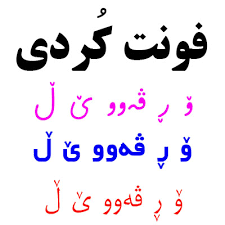
Implementation of Article 15 of the Constitution
Dr. Sharifi cited the exact title of the course as the “Short Course of Kurdish Language Teacher Training” and announced the duration of the course from January to February. “The purpose of this course is to train specialists and teachers in the field of Kurdish language teaching, to respond to people’s socio-cultural demands, to provide basic and scientific education, to keep native and local languages alive and to move along,” the university professor said. It is the implementation of the article 15 of the Constitution. “Unfortunately, it is sometimes observed that institutions and individuals without the necessary expertise and skills teach the Kurdish language, which lacks scientific principles and expected returns,” he said. But we are going to teach the language at the university, basically and scientifically, and the teach methods. “
The short course, an introduction to the field of Kurdish language
Dr Sharifi also told our reporter about the long-term vision of establishing a Kurdish language and literature field: “We look at this course as an introduction. If after a short period of time, it is widely welcome and the result is as expected, then one might think of asking for a degree. Initial and statistical studies must first be conducted, then researched and established in the field of Kurdish language and literature. We have not yet come to a comprehensive understanding of the field. “
Executive Issues and Course Information
“The teaching of these courses at the university and in the academic environment has many advantages over the schools and other centers,” said Payam Noor university president. For example, one can point to the scientific approach to the problem and the lack of margins. Registration for this course is open to all who have at least a high school diploma and have just begun. It’s free and has just begun. For this period, the university has given the privilege of registering 40 people, which has been well received. The cost of this course is $4 . The reason for this low cost is also paying attention to the target community, the students. “
Considereing the scientific level of the professors
Dr Sharifi also told our correspondent on how to select professors: “Experts such as Dr. Ibrahim Esmaeilpour and Dr. Behzad Ahmadi will be lecturers in this field who have authored Kurdish linguistics books. We have had serious consultations with the University of Kurdistan, which has established an undergraduate, literary, and Kurdish language, and renowned professors. The first and only university to obtain a certificate in Kurdish language and literature was the University of Kurdistan and the first to obtain the necessary licenses in the short term was Saqez Payam Noor University. In general, professors have also emphasized a scientific and highly specialized approach. At university, we have carefully selected professors to teach at least two books in Kurdish or Kurdish linguistics and literature, with a track record of teaching in academic centers and in schools. The professors of this course have a history of authoring and collaborating on the editing of Kurdish phonology for guidance as an optional textbook.
The need to pay attention to the quality of teaching Kurdish
“The number of Kurdish language schools is significant,” he said on the number of Kurdish language schools in the region and the province. But unfortunately, the language learners are sometimes taught in these schools by disadvantaged people who do not have the necessary quality. For example, alongside English language schools, we also find Kurdish language teaching that faces definitely lack in quality and efficiency. The number of Kurdish language schools of scientific quality and methodologies is small and no exact statistics can be provided. In Saqqez, this number may be difficult to reach at one or two schools, and we do not know the quality of the teachers and their teaching style.
Iran’s privileged status
Dr. Sharifi compared the status of attention to education and teaching and research on Kurdish language and literature between countries such as Syria and Turkey to the status of Iran, while emphasizing that careful commentary requires serious field and expert scrutiny, “Iran seems to be much better than countries like Turkey and Syria,” he added. But it is heard that the state of publishing and education is good in Kurdistan Regional Government. Kurdish publishing is not limited to Kurdish areas, and in Saqqez, four Kurdish publishers are busy publishing, and we are witnessing the unveiling of new Kurdish books almost every month. The growing momentum in recent years has accelerated.”

